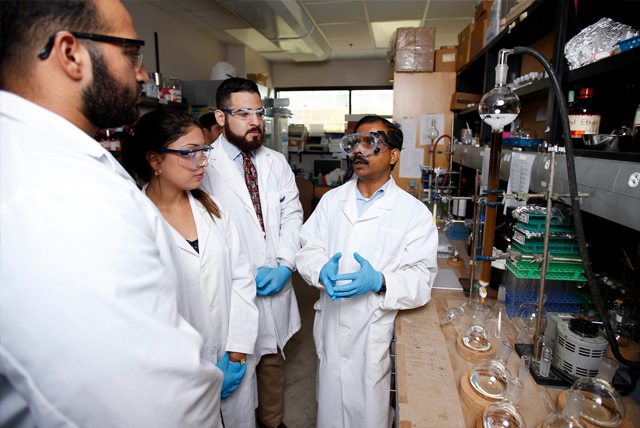Document Type
Article
Publication Date
12-17-2022
Abstract
Historically organometallic compounds have been used to cure certain diseases with limited applications. Although bismuth belongs to the category of heavy metals, many of its derivatives have found applications in modern drug discovery research, mainly because of its low toxicity and higher bioavailability. Being an eco-friendly mild Lewis acid, compounds having bismuth as a central atom are capable of binding several proteins in humans and other species. Bismuth complexes demonstrated antibacterial potential in syphilis, diarrhea, gastritis, and colitis. Apart from antibacterial activities, bismuth compounds exhibited anticancer, antileishmanial, and some extent of antifungal and other medicinal properties. This article discusses major synthetic methods and pharmacological potentials of bismuth complexes exhibiting in vitro activity to significant clinical performance in a systematic and timely manner.
Recommended Citation
Shetu, S. A., Sanchez-Palestino, L. M., Rivera, G., & Bandyopadhyay, D. (2022). Medicinal bismuth: Bismuth-organic frameworks as pharmaceutically privileged compounds. Tetrahedron, 133117. https://doi.org/10.1016/j.tet.2022.133117
Creative Commons License

This work is licensed under a Creative Commons Attribution-NonCommercial-No Derivative Works 4.0 International License.
Publication Title
Tetrahedron
DOI
10.1016/j.tet.2022.133117



Comments
Original published version available at https://doi.org/10.1016/j.tet.2022.133117